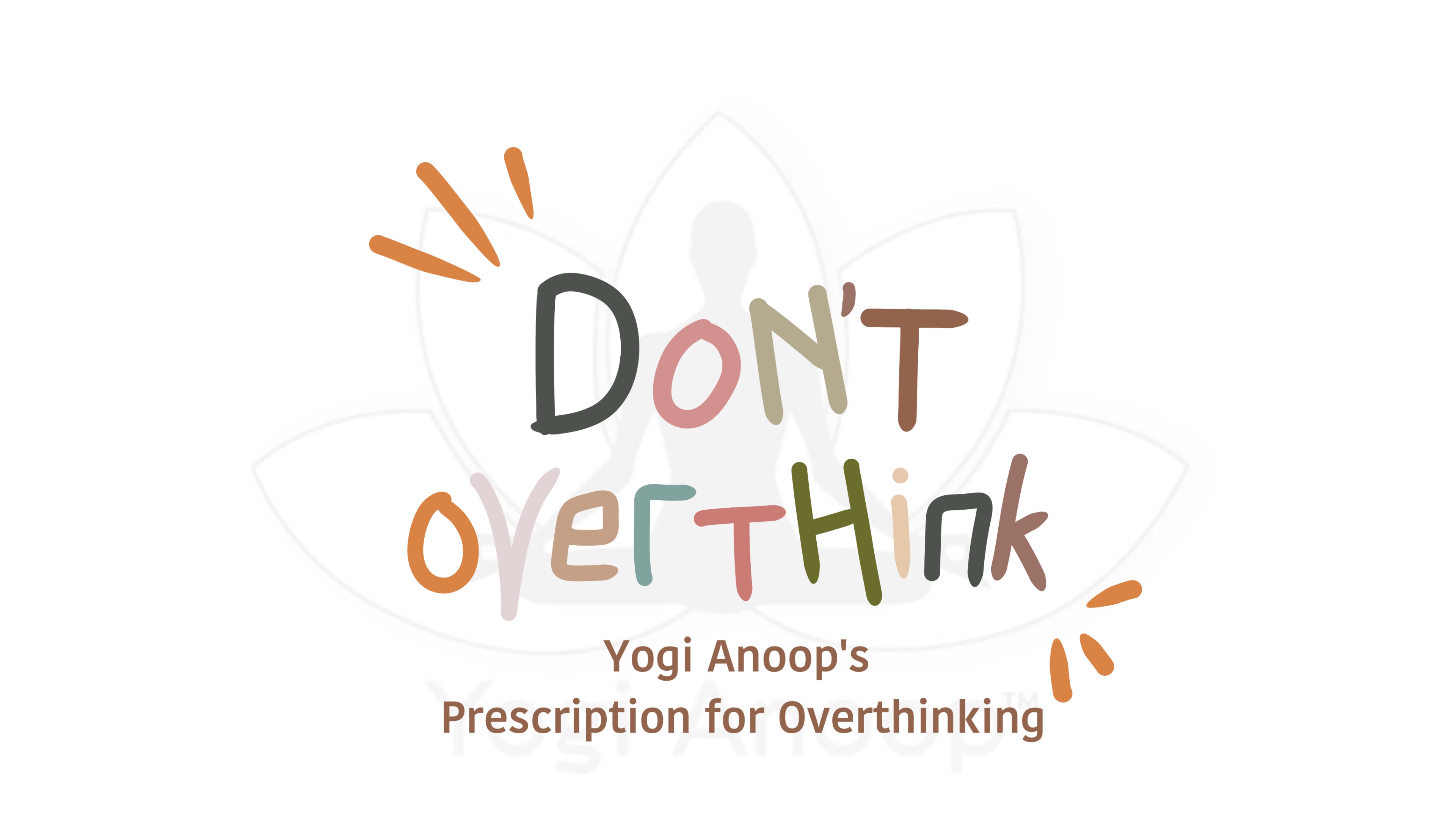
Yogi Anoop's Prescription for Overthinking
2 years ago By Yogi AnoopYogi Anoop's Prescription for Overthinking
Overthinking is a common experience that everyone goes through at some point in their lives. It's natural to ruminate on a particular thought or situation, especially when faced with a challenging task or problem. However, excessive overthinking can lead to significant negative effects on the brain, affecting not only our emotional wellbeing but also our physical health.
Yogi Anoop, a renowned yoga teacher and wellness expert, has been advocating for mindfulness and meditation practices as a way to combat the negative effects of overthinking. Here are some of the major side effects of overthinking in the brain that he has identified:
Increased stress and anxiety:
Overthinking causes a constant state of stress and anxiety, leading to the production of cortisol, the stress hormone. When cortisol levels remain elevated for prolonged periods, it can lead to negative effects on the immune system, heart health, and brain function.
Insomnia and sleep disturbances: Overthinking can make it difficult to fall asleep and stay asleep, leading to chronic insomnia and sleep disturbances. Lack of quality sleep affects the brain's ability to function, leading to mood swings, impaired decision-making, and memory problems.
Reduced productivity:
When the mind is preoccupied with overthinking, it becomes challenging to focus on the task at hand, leading to reduced productivity. This can affect one's personal and professional life, leading to missed deadlines and poor performance.
Increased risk of depression:
Overthinking can lead to a persistent negative outlook on life, leading to depression. When the brain constantly focuses on negative thoughts and experiences, it can affect the brain's chemical balance, leading to a depressive state.
Cognitive overload:
Overthinking can lead to cognitive overload, where the brain becomes overwhelmed with information and is unable to process it effectively. This can lead to mental exhaustion, impaired decision-making, and memory problems.
Physical symptoms:
Overthinking can lead to physical symptoms such as headaches, muscle tension, and stomach problems. These physical symptoms can affect one's overall health and wellbeing, leading to chronic health problems.
To combat the negative effects of overthinking, Yogi Anoop recommends practicing mindfulness and meditation. These practices can help calm the mind and reduce stress and anxiety levels. Mindfulness involves focusing on the present moment, while meditation involves focusing on a particular object or thought. Both practices can help retrain the brain to focus on positive thoughts and experiences, leading to improved mood and overall wellbeing.
In addition to mindfulness and meditation, Yogi Anoop recommends practicing yoga as a way to combat the negative effects of overthinking. Yoga involves a combination of physical postures, breathing techniques, and meditation, making it a comprehensive practice for improving overall health and wellbeing.
In conclusion, overthinking can have significant negative effects on the brain, affecting not only our emotional wellbeing but also our physical health. Yogi Anoop's recommendation of mindfulness, meditation, and yoga can be effective ways to combat the negative effects of overthinking and improve overall health and wellbeing. By incorporating these practices into our daily routine, we can retrain our brains to focus on positive thoughts and experiences, leading to improved mood, productivity, and overall quality of life.
Recent Blog
Copyright - by Yogi Anoop Academy
